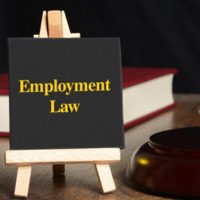Proposition 22: Do Workers Win?

The fight in California as to whether gig workers will be legally considered independent contractors or actual employees, progresses, as the California Supreme Court hears arguments as the Proposition 22 case.
How It Started
The entire debate started when the State of California instructed gig employers, companies like Uber, Lyft, DoorDash, and similar companies, that they must classify their workers as employees. This has a number of benefits—for example, employees are covered by the Fair Labor Standards Act, or they may be entitled to workers compensation, and Family Medical Leave—all the state and federal benefits that employees (but usually not contractors are entitled to receive.
But for the companies, the reclassification meant higher expense, an expense that would invariably be passed onto consumers, and possibly, less employment for those individuals who were employed by these companies.
Proposition 22
To combat this, voters passed Proposition 22, allowing the companies to continue to call these individuals independent contractors.
But in 2021, a lower court struck down Proposition 22. Now, the State Supreme Court will weigh in.
The Court could, possibly, invalidate all of Proposition 22, meaning that these gig workers would have to be considered to be employees, for better or worse.
Better or Worse?
For gig workers in the industry, Proposition 22 appears to be a mixed bag. Many voted for Proposition 22, meaning they wanted to continue to be independent contractors, despite losing the various protections that being an employee they would be entitled to receive.
But on the other hand, many workers complain of poor pay, and being taken advantage of, because of their status as contractors under Proposition 22 (although many companies like Uber and Lyft, are providing some benefits to workers, like insurances). According to many reports, drivers are having to work 12 hours, just to make what they would earn at a traditional job working 7 hours.
How much do these gig workers actually make? Would they be better off as employees, with the salary and overtime salary protections of the Fair Labor Standards Act (FLSA)? That’s a hard question to answer, because estimates of what these employees make vary on a number of factors.
Labor groups argue that the effective hourly wages of these workers is below minimum wage, because of the unpaid time that these workers spend waiting for rides or deliveries to actually show up. Additionally, workers lose money on expenses, which, as independent contractors, they are generally responsible for paying.
Because of this, some studies estimate that these workers may earn as little as $6.20 an hour-a figure that, if true, would make it in workers’ best interest to be employers. But ultimately, it looks like the California Supreme Court may be the one to make the final decision.
We can help you understand your rights as an employee. Contact the San Jose employment lawyers at the Costanzo Law Firm today.
Sources:
calmatters.org/economy/2024/05/prop-22-oral-arguments/
nationalequityatlas.org/prop22-paystudy
